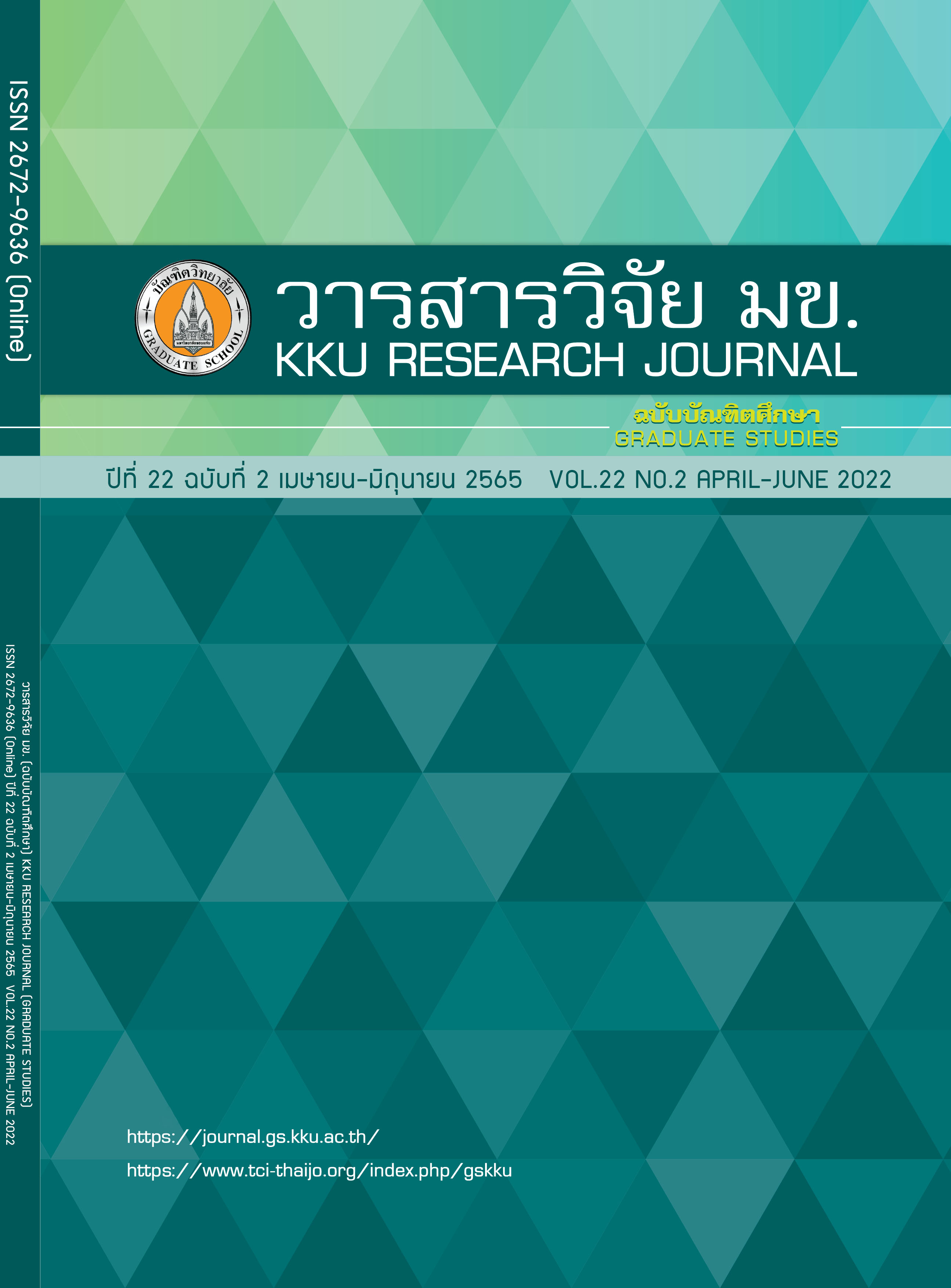High Performance Liquid Chromatography (HPLC) Fingerprint Study and Analysis of Aloin and Piperine Contents From Thor-Ra-Nee-San-Ta-Kat (TRK) Formula in Thailand
Keywords:
Aloin, Piperine, Thor-Ra-Nee-San-Ta-Kat FormulaAbstract
Thor-Ra-Nee-San-Ta-Kat (TRK) is an ancient herbal formula used for the treatment of various diseases with the indication from the list of essential herbal medicinal products for the treatment of degenerative diseases. TRK is manufactured and distributed in hospitals and Thai traditional clinics for the treatment of chronic muscle pain and constipation as well as large-scale production in pharmaceutical factories. This research is the high-performance liquid chromatography (HPLC) fingerprint study and analysis of aloin and piperine from an in-house TRK product compared with ten TRK products from hospitals and commercial sources. The results exhibited six distinct HPLC peaks from TRK1-TRK11 at the retention time of 2.567, 3.421, 11.782, 12.985, 14.970, and 49.752. The HPLC peaks at retention times 12.985 and 14.970 were identified as aloin A and aloin B, respectively whereas the peak at 49.752 was pinpointed as piperine. The marker analysis showed that the average aloin content and piperine content in TRK products were 16.524 ± 0.41 and 25.590 ± 037 % dry weight, respectively. The results from the study will be useful for the standardization and quality control together with the increment of confidence, the efficiency, and the safety of TRK products in the future.
References
Prasatwech P. Vach-Suk-Sa-Sang-ka-pa 1. Bangkok: Thai publisher; 1908. Thai.
Department of Medical Sciences Ministry of Public Health . Ya-Thor-Ra-Nee-San-Tha-Kat Raw materialquality and Safety. Nonthaburi: 1241 Miraculous, 2012. Thai.
Tasleem F, Azhar I, Nawazish Ali, S, Perveen S, Alam Mahmood Z. Analgesic and anti-inflammatory activities of Piper nigrum L. Asian Pacific Journal of Tropical Medicine 2014; 7(1): 461-468.
Kumar S, Gautam S, Sharma A. Antimutagenic and antioxidant properties of plumbagin and other naphthoquinones. Mutation Research - Genetic Toxicology and Environmental Mutagenesis 2013; 5(1): 30-41.
Ninad R, Jawade, Abhijeet R, Chavanb. Ultrasonic-Assisted extraction of aloin from Aloe vera gel. Procedia Engineering 2013; 51: 487-493.
Park M, Kwon H, Sung M. Intestinal absorption of aloin, aloeemodin, and aloesin; a comparative study using two in vitro absorption models. Nutr Res Pract 2009; 3(1): 9-14.
School of Traditional and Alternative Medicine. Textbook Thai traditional medicine branch Thai Traditional pharmacy. Chiang Rai: Chiang Rai Rajabhat University publisher; 2008. Thai.
Poowunna, et al. Standardization of Thai Traditional Medicine Method for Treatment of Garcinia hanburuyi Hook.f Resins. IJPS. 2014 May-Aug; 10(2).
Pithayanukul P. Beautiful discerning: How to getthe health benefi ts of tea. Chaladsue Magazine 2010; 16(98): 56–57.
Deng S, West BJ, Jensen CJ. Thermal degradation of flavonol glycosides in noni leaves during roasting. J Food Sci Techno 2011; 3(2): 155–159.
Downloads
Published
Issue
Section
License
Copyright (c) 2022 KKU Research Journal (Graduate Studies)

This work is licensed under a Creative Commons Attribution-NonCommercial-NoDerivatives 4.0 International License.



